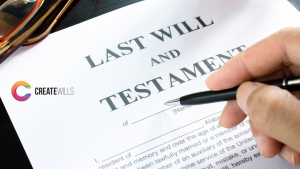What Happens to Debts in Your Will?
When creating a Will, one of the most important considerations is how your assets will be distributed. However, an equally significant aspect is how your debts will be handled after your death. Many people don’t realize that debts don’t simply disappear upon death, and how they are managed can have a major impact on the estate and beneficiaries. In this article, we will explore what happens to debts in your Will and how they are dealt with during the estate administration process.
Understanding Debts and Wills
When you pass away, your estate (which includes your assets, such as property, savings, and investments) will go through a legal process called probate. This process not only involves distributing your assets but also paying off any outstanding debts. Let’s break down how debts are handled in relation to your Will.
Key Takeaways:
-
Debts Don’t Disappear: Your debts do not automatically vanish upon your death.
-
Executor’s Role: Your Will appoints an executor, who is responsible for managing your estate and paying your debts.
-
Debt Settlement: Debts are typically paid out of your estate before assets are distributed to your beneficiaries.
-
Personal Liability: Beneficiaries are generally not responsible for paying your debts, unless they are co-signers or guarantors on loans.
How Are Debts Handled in Your Will?
The debts owed at the time of your death will usually be settled from the estate before any distribution to beneficiaries. Let’s go over how debts are generally treated:
1. Executor’s Responsibility
Your Will should name an executor, the person tasked with managing the estate. This individual will have several duties, including paying off any debts and taxes before distributing the remaining assets to the beneficiaries. Executors are usually responsible for:
-
Identifying outstanding debts: This involves gathering a list of all debts owed at the time of death, including credit card balances, mortgages, personal loans, and any other obligations.
-
Paying the debts: The executor will use estate funds (money from bank accounts, the sale of assets, etc.) to pay off the debts. If the estate has insufficient funds, some debts may go unpaid or be settled in a reduced amount.
-
Handling disputes: The executor is also responsible for resolving disputes between creditors and beneficiaries regarding debt payments.
2. Types of Debts That Are Settled from the Estate
There are many different types of debts that can be part of an estate, and all are generally paid from the estate before assets are distributed to beneficiaries.
-
Secured Debts: These are debts backed by collateral, such as mortgages or car loans. If there’s not enough money to pay these debts, the creditor can take possession of the property.
-
Unsecured Debts: These are debts not backed by collateral, such as credit card debt or personal loans. These will typically be paid from the estate, and if there are insufficient funds, creditors may be forced to write off the debt.
-
Taxes: Estate taxes, income taxes, and inheritance taxes must be paid from the estate before assets are distributed.
-
Funeral Expenses: These are typically paid from the estate, though they may take priority over other debts in some jurisdictions.
3. What Happens if There’s Insufficient Estate Funds?
If your estate doesn’t have enough assets to cover all your debts, the remaining debts will be written off, and creditors will not be able to claim payment from your beneficiaries. However, this is subject to the nature of the debt:
-
Secured Debts: Creditors may be able to seize property that was used as collateral, such as a house or car, if the estate cannot pay off the debt.
-
Unsecured Debts: If there are not enough funds in the estate to cover unsecured debts, creditors may not recover the full amount owed. This could result in creditors writing off the debt or settling it for a lesser amount.
In the case of insufficient funds, it’s important to note that beneficiaries are generally not liable for the deceased’s debts unless they are co-signers or guarantors on a loan.
Who Pays the Debts If There’s No Will?
If you die intestate (without a Will), the rules for paying your debts are very similar to those when a Will is present. An administrator will be appointed by the court to manage your estate. The estate will still go through probate, and debts will be paid out before assets are distributed. However, the main difference is that without a Will, there may be additional complications in choosing an administrator, and the distribution of assets may not align with your wishes.
What Happens to Specific Debts in Your Will?
In your Will, you can specify how certain debts should be handled. For example, you might leave instructions on how to handle specific debts or assign funds to cover them.
Mortgage and Property Debts
If you own a home or property, any mortgage or home loan you have will typically be settled from the estate. If there are enough funds, the mortgage will be paid off. If not, your executor may need to sell the property to cover the remaining mortgage balance. If the property is a major asset, you may specify that the property be sold to pay off the mortgage before passing the remainder of the proceeds to your beneficiaries.
Loans to Family Members
If you have lent money to family members or friends, you can specify in your Will whether you want these loans to be repaid from the estate or forgiven. If you don’t specify, the executor will need to decide based on the situation.
How to Protect Your Beneficiaries from Debts in Your Will
While debts are generally settled from the estate, there are steps you can take to protect your beneficiaries from inheriting any responsibility for them:
-
Consider Life Insurance: You may want to consider taking out life insurance to ensure your beneficiaries are not burdened with your debts. Life insurance can be used to pay off any outstanding debts after your death.
-
Establish a Trust: Setting up a trust can allow you to pass on assets to your beneficiaries while ensuring that specific debts are settled from the trust fund. A trust can also be used to protect assets from creditors in certain circumstances.
-
Be Clear in Your Will: Clearly state in your Will how you want debts to be handled, including whether you want certain debts forgiven or repaid from your estate.
FAQs About Debts in Wills
1. Can my beneficiaries be responsible for my debts?
Generally, no. Beneficiaries are not personally responsible for your debts unless they have co-signed loans or are guarantors.
2. What if my estate doesn’t have enough funds to cover my debts?
If your estate is insufficient to cover all debts, unsecured debts are typically written off. However, secured debts may require selling assets to settle the debt.
3. Do funeral expenses take priority over other debts?
In many jurisdictions, funeral expenses take priority and must be paid from the estate before other debts are settled.
4. Can I specify how to handle my debts in my Will?
Yes, you can provide instructions in your Will about how specific debts should be handled, such as whether they should be repaid or forgiven.
Conclusion
Debts play a significant role in estate planning, and understanding how they will be handled after your death is crucial. By specifying in your Will how you want your debts to be settled, you can ensure that your beneficiaries are protected from any unwanted financial burdens. Consult with a legal expert to ensure your Will complies with local laws and protects both your assets and your loved ones.
Why Choose CreateWills.uk?
At CreateWills.uk, we provide:
- Quick and easy online will creation in minutes.
- Legal compliance with UK will laws.
- Affordable pricing for individuals and couples.
- Optional solicitor review for added peace of mind.
Please click here to Create a will
Most useful information
How to Create a Legal Will in Minutes
How to Write Your Will in Just 10 Minutes
Why You Should Write a Will Today
What Happens If You Die Without a Will?
What Happens if You Die Without a Will?
Why Writing a Will is Important for Your Family
What Happens If You Don’t Have a Will
The Benefits of Creating a Will
What Happens If You Die Without a Will?




